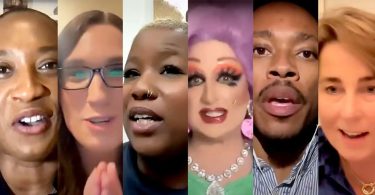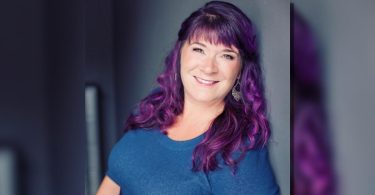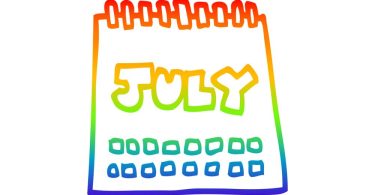It’s Back to School season! What better way to let your non-binary students, peers, or friends feel included than by using gender-neutral language?
Teen Vogue recently published a guide to using gender-neutral language.
Here are some suggestions for making the non-binary folks in your life feel included.
Simple changes
One simple thing you could do is replace phrases like ‘ladies and gentlemen’ with ‘everybody.’
‘Using gendered terms — such as “ladies [and] gentlemen” — is highly presumptuous. Especially in today’s society, in which many persons are aware that they don’t identify as male or female and therefore are uncomfortable with this type of language,’ Dara Hoffman-Fox, a professional counselor, told Teen Vogue.
Another thing you could do is refrain from using ‘-man’ descriptors, such as ‘postman’ or ‘fireman.’
Instead, we can say things like ‘postal worker’ or ‘firefighter’. This way, we normalize the idea that anyone can perform these jobs — not just those who identify as men.
‘When we speak about “mankind” or “the achievements of man,” what we’re doing is confirming the subconscious bias that men are intellectually, morally, and physically superior to women. Which is clearly untrue,’ Sam Dowd, a British didactics expert, told Teen Vogue.
‘By using such language, we exclude women — and, for that matter, nonbinary people — from history.’
Examples of non-binary phrasing
Here are some other examples of simple changes you can make to ensure your language is inclusive.
Folks, folx, or everybody instead of guys or ladies/gentleman
Humankind instead of mankind
People instead of man/men
Members of Congress instead of congressmen
Councilperson instead of councilman/councilwoman
First-year student instead of freshman
Machine-made, synthetic, or artificial instead of man-made
Parent or pibling instead of mother/father
Child instead of son/daughter
Kiddo instead of boy/girl
Sibling instead of sister/brother
Nibling instead of niece/nephew
Partner, significant other, or spouse instead of girlfriend/boyfriend or wife/husband
Flight attendant instead of steward/stewardess
Salesperson or sales representative instead of salesman/saleswoman
Server instead of waiter/waitress
‘Some people may argue that such concerns are unimportant, but if you consider that language is the primary filter through which we perceive the world, it’s obvious that it affects how we relate to and make judgments about one another,’ Dowd said.
‘Until now, history has been written and told by men, to the detriment of others. Part of any attempt to create a society in which all people — regardless of gender, sexuality or race — have equal opportunities and freedoms is to use language that no longer excludes certain groups or creates unconscious bias.’
Language is important, even if non-binary people aren’t around
The Teen Vogue article also notes that just because you don’t think a non-binary person is in earshot doesn’t mean binary language is okay. Not all non-binary people present androgynous, thus making them easily mistaken for the gender they were assigned at birth.
‘It’s fairly common for people to assume that a nonbinary person isn’t in the room,’ Hoffman-Fox said. ‘The truth is, there is no way someone could know that, unless they have had conversations with every person in the vicinity and have asked them if they use binary terms to describe themselves.’
Additionally, Hoffman-Fox urges people to speak up about the use of binary language.
‘Some people will be comfortable with being very direct, like: “Excuse me, but when you used ladies to describe our friend group, it leaves out those who are uncomfortable with being gendered as female,”’ Hoffman-Fox explains.
‘Some may want to take a more subtle approach, such as repeatedly using a gender-neutral term within earshot of the person using binary language.’
‘Depending on the situation, you can address the situation with the person publicly or privately, in person or through a message,’ Hoffman-Fox adds. ‘Try to keep it as simple as possible, explaining briefly what binary language is and how it can often result in people feeling invisible.’
Binary language harms cis and binary trans people, too
And let’s not forget that binary language can also harm cisgender and binary trans people as well.
‘There are people who aren’t nonbinary who are uncomfortable with binary gendered terms, thanks to these terms also being experienced as stereotypical,’ Hoffman-Fox said.
One example is female-identifying individuals objecting to being called ‘ladies,’ due to the stereotypes that term invokes.
‘Shifting to gender-neutral language is of benefit not only to those who are nonbinary but to many others in society who feel that binary terms are inaccurate ways of describing them,’ Hoffman-Fox stated.
Anything else?
There are a growing number of parents participating in the ‘theybies’ movement. Here, parents make a conscious effort to raise their children gender-neutrally until they’re able to express their own gender identity.
In addition, countries such as Japan have introduced gender-neutral school uniforms, thus making the clear binary divide between males and females smaller.







